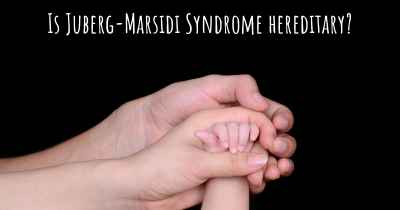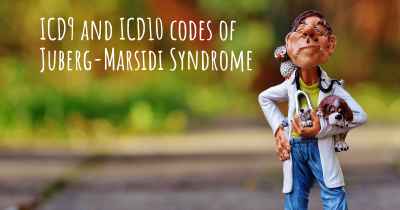What is the history of Juberg-Marsidi Syndrome?
When was Juberg-Marsidi Syndrome discovered? What is the story of this discovery? Was it coincidence or not?

Juberg-Marsidi Syndrome: A Brief History
Juberg-Marsidi Syndrome (JMS), also known as Mental Retardation, X-Linked, Syndromic 6 (MRXS6), is a rare genetic disorder that primarily affects males. It was first described in medical literature in 1981 by Dr. Robert Juberg and Dr. Vincent Marsidi, hence the name. JMS is characterized by intellectual disability, distinctive facial features, and other associated symptoms.
Discovery and Early Cases
The initial cases of JMS were identified by Dr. Juberg and Dr. Marsidi while they were working at the University of South Dakota School of Medicine. They observed a group of boys who exhibited similar physical and developmental characteristics, leading them to suspect a genetic syndrome. Through careful analysis and collaboration with other researchers, they were able to establish JMS as a distinct disorder.
Genetic Basis
JMS is caused by mutations in the MED12 gene, which is located on the X chromosome. This gene provides instructions for producing a protein that plays a crucial role in the development and function of various tissues and organs, including the brain. Mutations in the MED12 gene disrupt normal protein production, leading to the characteristic features and symptoms of JMS.
Clinical Features
Individuals with JMS typically exhibit moderate to severe intellectual disability. They may have delayed speech and language development, as well as learning difficulties. Facial features associated with JMS include a prominent forehead, widely spaced eyes, a flat nasal bridge, and a thin upper lip. Other common physical characteristics include joint hypermobility, long fingers, and flat feet.
Associated Symptoms
In addition to intellectual disability and distinctive facial features, JMS can be accompanied by various other symptoms. These may include seizures, behavioral problems, autistic-like behaviors, and gastrointestinal issues such as constipation. The severity and combination of symptoms can vary among affected individuals.
Diagnosis and Management
Diagnosing JMS involves a thorough clinical evaluation, including a detailed medical history, physical examination, and genetic testing. The identification of mutations in the MED12 gene confirms the diagnosis. As JMS is an X-linked disorder, it primarily affects males, while females may carry the gene mutation without displaying significant symptoms.
Management of JMS is focused on addressing the specific needs of each individual. This may involve early intervention programs, speech therapy, occupational therapy, and educational support. Regular medical monitoring is essential to address any associated health issues and provide appropriate interventions.
Research and Future Perspectives
Since its initial discovery, ongoing research has expanded our understanding of JMS. Scientists continue to investigate the specific mechanisms by which MED12 gene mutations lead to the observed symptoms. This knowledge may contribute to the development of targeted therapies or interventions to improve the quality of life for individuals with JMS.
Conclusion
Juberg-Marsidi Syndrome, first described by Dr. Juberg and Dr. Marsidi in 1981, is a rare genetic disorder characterized by intellectual disability, distinctive facial features, and other associated symptoms. The identification of mutations in the MED12 gene confirmed the genetic basis of JMS. Ongoing research aims to deepen our understanding of this syndrome and potentially improve the management and outcomes for affected individuals.








